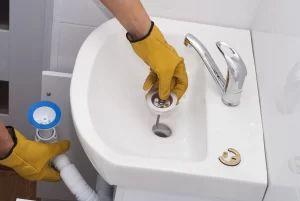How to Prevent Overflows at Home: A Guide to Protecting Your Property
 Overflowing water is one of the most common household problems, and it can lead to significant damage if not managed effectively. Whether it’s from sinks, toilets, bathtubs, or appliances, water overflows can cause structural damage, promote mold growth, and disrupt your daily life. Fortunately, with the right preventive measures and awareness, you can significantly reduce the risk of overflows in your home.
Overflowing water is one of the most common household problems, and it can lead to significant damage if not managed effectively. Whether it’s from sinks, toilets, bathtubs, or appliances, water overflows can cause structural damage, promote mold growth, and disrupt your daily life. Fortunately, with the right preventive measures and awareness, you can significantly reduce the risk of overflows in your home.
Common Causes of Overflows
Understanding the common causes of overflows is the first step to prevention. Some typical issues include:
Clogged Drains: Hair, grease, soap scum, and debris can accumulate in pipes, blocking water flow and causing backups.
Faulty Float Mechanisms in Toilets: A malfunctioning float can lead to continuous water filling, causing the tank to overflow.
Appliance Malfunctions: Washing machines, dishwashers, and water heaters can overflow if hoses are damaged or improperly connected.
Excessive Water Pressure: High water pressure can strain pipes and fixtures, increasing the risk of leaks and overflows.
Tips to Prevent Overflows
Keep Drains Clear: Regularly clean your drains to prevent clogs. Use strainers in sinks and tubs to catch debris like hair and food particles, and avoid pouring grease or oil down the drain.
Inspect Plumbing Fixtures: Check your toilets, faucets, and appliances for signs of wear or damage. Replace faulty parts, such as flappers or float valves in toilets, to ensure they work correctly.
Schedule Regular Plumbing Maintenance: Hire a professional plumber to inspect your system annually. They can identify potential issues, such as pipe corrosion or hidden leaks, before they escalate.
Use Appliances Responsibly: Don’t overload your washing machine or dishwasher, as this can lead to water spills. Regularly inspect hoses for wear and replace them every 3-5 years.
Install Overflow Alarms: Overflow alarms are affordable devices that alert you to water leaks or overflows, giving you time to take action before significant damage occurs.
Have Emergency Shut-Off Valves: Familiarize yourself with the location of shut-off valves in your home. In case of an overflow, turning off the water supply quickly can prevent extensive damage.
In conclusion, preventing overflows at home requires a combination of regular maintenance, responsible usage, and prompt action when issues arise. By keeping your plumbing system in top shape and addressing potential problems early, you can safeguard your home from the stress and expense of water damage. Contact Emergency Plumber in Stafford. After your call, we connect you immediately with a professional plumber. Furthermore, we are 24 hours available.
